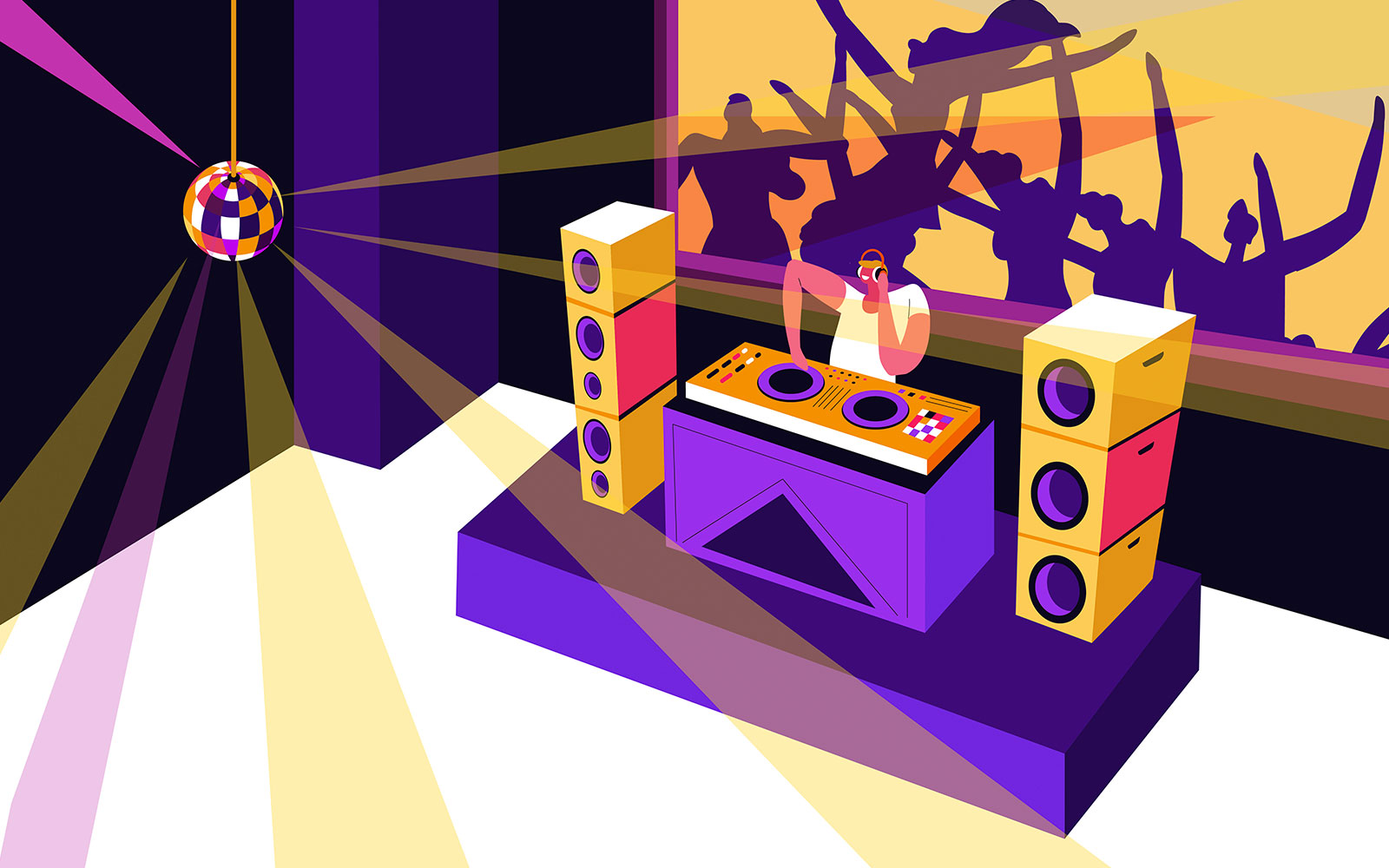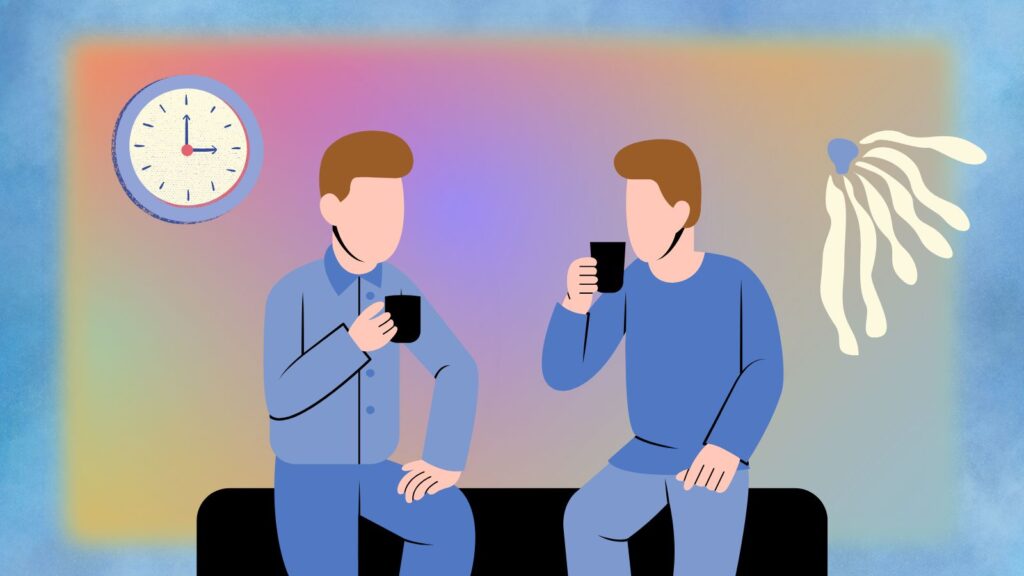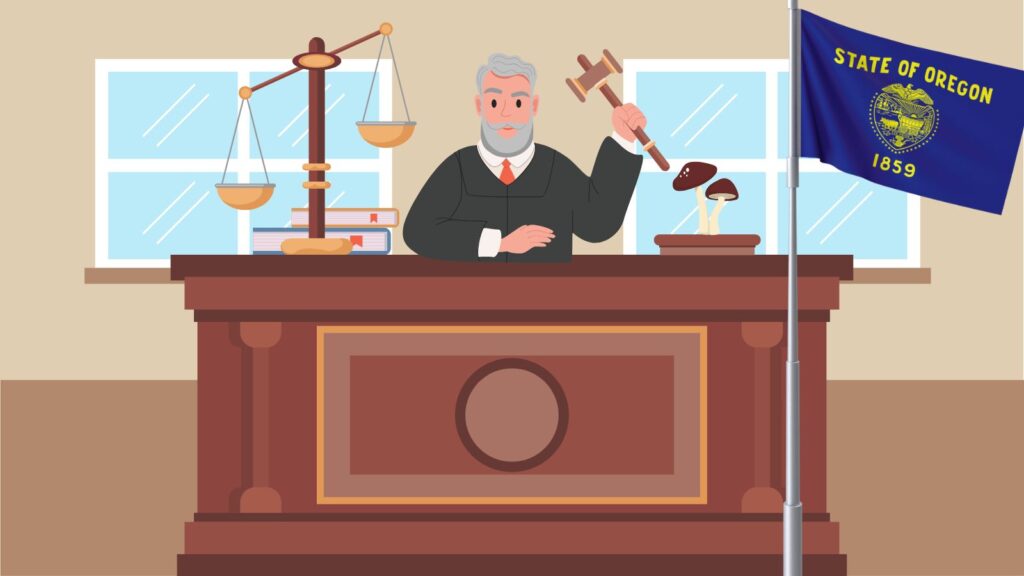Mitchell Gomez, Executive Director of DanceSafe, is at the forefront of harm reduction, drug policy and education. Founded in the San Francisco in 1998, DanceSafe is a public health organization promoting health and safety within the nightlife and electronic music community. Beyond the robust educational program that they diffuse throughout their numerous chapters in the United States, DanceSafe provides drug testing kits, and adulterant screening to the nightlife community.
Following in the footsteps of psychedelic trailblazers Rick Doblin and Earth Erowid, Mitchell Gomez attended the New College of Florida to pursue his studies in psychedelic research. Gomez’s interest in psychedelics sparked when he was an adolescent growing up in Florida. Through his own experience, and watching his peers suffer the consequences due to the lack of education about drugs and drug use, harm reduction and became a passion that accompanied another–psychedelics.
It’s a personal thing. I definitely saw friends who had really serious problems. Not because of the intrinsic nature of the drugs they were using, but because they just weren’t educated on how to use them.
Interview with Mitchell Gomez of Dance Safe
The adulteration of drugs is a public health crisis. With the publication of Ben Westhoff’s book, Fentanyl Inc., the scope and gravity of the opioid crisis, and the contamination of drugs with adulterants, is reaching more people. Simply put, drugs are being cut with dangerous substances, and sold as something that they’re not.
There are probably hundreds of thousands of potentially psychoactive substances that have not yet been invented. If you look at a standard fentanyl molecule. There’s a certain number of places that you can make a certain number of edits. And a tiny fraction of those have actually been brought to market. So we never know what chemists are going to develop next. We can’t say what will be coming down the pike in three years because we don’t know what’s going to e hitting the scene in three days. –Mitchell Gomez
Thus our conversation with Mitchell Gomez began without pleasantries. Mitchell Gomez immediately told us about DanceSafe‘s fundraising campaign to buy two FTIR machines. This advanced technology will enable DanceSafe to help tackle this crisis by providing the most advanced drug testing technology available. The current crisis as our departure point, we discussed the drug war, the stigmatization and safety of drug use, Dancesafe’s latest projects, and bringing psychedelics back to mainstream culture where they belong.
RS: How do we regulate this? What can we do to prevent the furthering of this adulterant crisis?
“The total removal of criminal penalties for personal possession.”
Mitchell Gomez: I think step one is the complete decriminalization of personal drug possession and non-profit distribution. (By non-profit distribution I mean, somebody knows where to get something. Five people all put in their money, and that person goes and gets the stuff. That’s dealing under a legal context). Then you can do harm reduction services in a much more comprehensive way. You could set up drop-in drug checking centersin city centers with 15 FTIRS. Everybody can bring their drugs, you can test them openly, because nobody is risking arrest for possession. And so that’s really the first step that needs to happen before we even discuss any other things.
“The Creation of Legal, Regulated Marketplaces.”
MG: What we need is a legal way for people to access the drugs they want to consume. I’m not saying sell heroin at 711. There’s a whole galaxy of regulatory possibilities between total prohibition and over the counter sales. And I think that’s probably something that will have to discuss substance by substance. But until people have a legal supply of the substances they want, this is not something that we can really address in a comprehensive way, because it’s sort of intrinsic to black markets.
We saw this with alcohol prohibition. We saw thousands and thousands of Americans dying from black market alcohol in the 1930s. So this is a thing that’s built into prohibition. The goal of prohibition is to make drug use so dangerous that you don’t engage in that behavior. Except that we know that that’s not how drug consumption works, right? And we end up with situations like this [opioid crisis] where we have equivalent deaths to 9/11 every 16 days or something. We’re talking: the AIDS crisis, car accidents before seat belts. We’re talking about a major public health crisis. And it’s largely being ignored.
RS: And why is that?
MG: There’s this huge stigma in this country about people who use drugs. Particularly people who use, you know, IV drugs or people who are shooting drugs. I’ve worked hundreds and hundreds of events with DanceSafe. We never get asked in the booth about opioids. I really never had anyone asked me if I could test their heroin. But if you look at data from events, opioids gets dropped off all the time. The stigma exists even within that community. We need to remove that stigma around substance use. Particularly by having people who are non-problematic substance users come out about it to their friends and family. “I use drugs, they don’t affect my life negatively.” There’s real risk to that. But also a real reward in being able to move the conversation forward.
RS: Is this about legalizing all substances? Those in the space are using the term “psychedelic exceptionalism” to describe the problematic line being drawn between psychedelics and “illicit drugs” on this issue. What’s a “good” versus “bad” drug?
MG: The idea that my drugs are fine, but your drugs are dangerous. Your drugs should be illegal drugs, but my drugs are okay though. That’s a real dynamic. I go back and forth on this. Fundamentally I am revolutionary. I think that we should burn The drug war to the ground. I don’t think that it serves any purpose. At the same time, the Incrementalists who said, “we should move the conversation on marijuana first, then bring the rest.” They’ve gotten a lot more done than the revolutionaries right? Without legal marijuana, I don’t think we would be having these conversations.
RS: But from a revolutionary’s perspective, you would just bring it all down?
MG: I would argue that the safest way for society to address substance use is entirely separate it from the criminal justice system.
RS: Can you clarify what you mean by that?
MG: I don’t think it’s a valid use of law enforcement to address drug use at any level. Law enforcement should focus on crimes with victims. Nobody goes comes forward and says, “hey, this guy sold me some drugs.” Because this is a desired service. For people who are experiencing problematic use, have a way of addressing those behaviors, like funding treatment centers. But the reality is, according to the DEA, the number of opioid users who meet the criteria for problematic substance use is like 26%.
So the vast majority of the drugs that people think are really addictive, dangerous and really problematic, three-quarters of the users aren’t experiencing any of that. And we’re not used to talking about those substances that way. Nobody talks about the fact that the vast majority of heroin users are definitionally only recreational heroin users. They’re not experiencing any of the criteria for problematic use, and that’s the DEA number.
RS: Even if someone does have a problem with addiction, that involves many other factors than just the substance.
MG: The single largest predictor is childhood trauma. That will tell you more clearly than anything else if a person is going to develop problematic substance use. And so what we’re talking about is literally a war on survivors of childhood trauma. People experiencing problematic use are far more likely to come in contact with law enforcement. They’re far more likely to suffer medical incidents. And statistically, if [law enforcement] rolled into a college campus, and tossed all the dorm rooms, they would probably have better results than they do in like inner city urban areas. Which they could legally do with the school’s permission. Yet that’s never happened ever. I think everyone recognizes why that’s never happened.
It’s not about stopping drug use. It’s about stopping certain drug users, certain populations that are using substances. That’s what they’re concerned about. That’s what they’re trying to “address.” I’m pretty much in favor of just like not letting law enforcement get involved. I don’t think they they address the issues they claim to be addressing.
RS: From Mitchell Gomez’s perspective, what was the purpose of the drug war? What is the purpose of the drug war?
MG: I think that the goals of the drug war were to replace the Jim Crow laws. So the Jim Crow laws were a whole series of laws that let law enforcement really target minority communities. And once you’re in prison, slavery is legal. The exemption to the 14th amendment listed right there. “Except as punishment for crime.” So slavery is perfectly legal in this country, if you’ve been convicted of a crime. We treat prisoners that way. There are corporations that basically run all of their labor out of prisons at 20 cents, an hour or less, I think, in some cases.
These numbers are hard to figure out because of the way the data is gathered. But statistically, there are more white drug users in this country than any other race. But white drug users are less likely to be arrested, less likely to be charged with felonies for the same crimes if they get caught.
Look at a breakdown of people of color who are arrested with X number of drugs and white people arrested with X number of drugs. White people are statistically less likely to be charged with a felony. And once you’re a convicted felon, your options for financial advancement are severely constrained, which encourages you to continue to engage in the drug trade. And then we have these three strikes laws where they can just like lock people up forever. It comes off as sort of conspiratorial, but if you look at the outcomes of the drug war, even if that wasn’t the purpose of the drug war, which I think it was, it is undeniably than the outcome. So doesn’t really matter.
RS: How much money has this cost us?
MG: We’re talking about a trillion dollars. And everything has gotten worse by any conceivable metric. I often think that for most of the people involved in the nuts and bolts of the drug war, it’s a job, right? But I don’t think a lot of the policymakers are deluded enough to think that prohibition is working. You would have to be delusional to think that the drug war is accomplishing what it says it’s supposed to.
RS: But you’re also inside of this. You’re someone who’s dealing with many of these different moving parts. What are you seeing, what are you hearing, how are policymakers talking about this?
MG: The people I talked to are broadly aware that the drug war is not working. That it’s making everything worse. And that we really need to address as a society how we’re going to talk about substance use. Is that the case for federal legislators who are elected from rural Kentucky where these fentanyl deaths are the worst? If you’re a representative from one of the top 10 counties in the country for fentanyl deaths, I should be able to get in touch with you. I promise you the police can get in touch with them. DARE can get in touch with them. I just can’t, which is problematic.
RS: What are a couple projects right now that Dancesafe is doing, from a harm reduction standpoint, that you’re most excited about?
MG: The first big thing that we’re doing is building a harm reduction outreach vehicle for DanceSafe, particularly for us at Burning Man. Ideally, we’d like to use it at multiple events.
We’re also fundraising to buy two very, very sophisticated pieces of drug analyzing technology. This is a piece of technology that government harm reduction agencies use in countries like Portugal, Switzerland and Spain. These are really high end, specific devices. This means positive identification. You could in legal context say, “we know that the sample was MDMA.” Having that level of technology and specificity is going to be a real game changer for both the public perception of drug checking, and how we operate.
We’ve already been in talks with government funded community health clinics throughout the United States. That are very interested in setting up some sort of drop-in drug checking service. These people could bring their drugs in, we could chemically analyze them, provide them with harm reduction messaging and tools they need to be safer about their use. We could take out billboards advertising that this is available.
RS: Are you guys making your services and kit more accessible to low income areas and under-educated communities? How are you doing your outreach in that sense?
MG: The core of our outreach focuses on festivals. We sell the fentanyl kits very close to cost. But unfortunately, because we don’t really have access to governmental grant writing. That’s just not a world willing to fund us. But with these machines, that would be a major change. It would let us start doing drug tracking in a way that would be far more accessible to non-festival attendees.
RS: Why are psychedelics a matter of civil rights?
MG: I firmly believe that people have a fundamental right to do what they like with their minds. People have a right to take whatever drugs they want, as long as that use doesn’t impact others. We should position the whole conversation that way. Humans have a right to alter their consciousness. This is a matter of civil rights and we should simply make that use as safe as possible.
RS: What do you feel is missing from the conversation about psychedelics currently?
MG: Psychedelics’ prohibition. We’ve lived with it for, you know, 50 years now, so it has started to feel like the norm. Psychedelic prohibition is a real aberration from the norm. The norm is the complete integration of these experiences within communities.
Religious use of psychedelics clearly predates human writing. We have these carved mushrooms in caves that are thousands of years older than human writing. We really need to have a broader historical understanding of the substances. You know, mushroom use, particularly in the New World, in this continent was a core part of their religious traditions. If we have that conversation, it’ll help sort of place psychedelics within their proper historical context. They have been a part of human civilization as far back as we know how to examine. You could no more effectively ban psychedelics than you can effectively ban sex. It’s a core part of the human condition to experience these things.
RS: You’re an educator. So for parents out there, for kids out there, do you have any advice about to talk about drugs?
MG: I think the best way is to not start with an immediate outing of your own personal use. There’s so much information out there now about the medicalization of psychedelics. You don’t need a big sit down conversation once people are on board with this idea that not all drug use is problematic, and that these things have medical uses.
And then just being honest about your own benefits. I mean, that’s a big part of my personal motivation. Psychedelics have been tremendously beneficial in my life. I’m not going to pretend that these substances don’t provide benefits, because they do.
RS: What about the “gatekeeperism”–those trying to control who has access to these drugs. There’s a lot of volatility in the space right now about how this is all going. There is concerned about the “capitalists,” coming into the space for example. Any thoughts on that?
MG: My concern around that dynamic is not one of physical control. We really need to keep in mind what it means to not just legalize, not just end the drug war, but to fix the existing inequalities that are here because of the drug war. How do we actively undo the damage that we’ve done through our behavior as a society in the drug war? And if we posit everything in that direction, I think that we can have a really meaningful change.
RS: How do we encourage this education?
MG: We want to avoid the idea that psychedelic use is counterculture. It’s a part of mainstream culture. It’s a near certainty that JFK did acid. You know, CIA officers were using LSD before it was illegal. We want to push the narrative that psychedelic use is a human right, that anyone who wants to access them should be able to. Not saying that like: “Oh, those hippies.” We want to avoid the sort of re-stigmatization of substance use.
RS: In terms of all the players involved, how we can support each other in achieving that? How can we work together to achieve that goal?
MG: Even if we disagree on certain strategies, there’s enough people out there who are actively trying to stop the whole movement. So within the movement, we can just play nice. I’m not saying that we shouldn’t express our disagreements. But I am saying that this the factionalism within psychedelic culture doesn’t add to anything. I don’t think it helps anyone. And so just keep in mind that we’re all a part of humanity. Within that subset, the people involved in the movement to legalize, not just psychedelics, but all drugs–ultimately we’re on the same side.
RS: What advice would you give a younger you?
MG: That’s a tough one.
RS: Don’t overthink it.
MG: Not having super hard set plans. Knowing the sort of general direction you want to go and heading in that direction is better than a plan; you have to learn to surf or the waves will crush you. And that’s very true both for psychedelic exploration and also moving forward in life.













